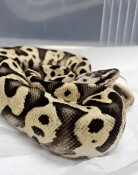Newly discovered brain cells hold promise for autism
Newly discovered brain cells hold promise for autism
Posted March. 02, 2015 13:39,
Brain cells have been detected that activate when a person tries to read one`s minds. Academics expect this can help treat social behavioral disorders like autism.
Keren Haroush, researcher at Harvard Medical School, discovered such brain cell activation from a monkey and announced her findings at February 26 issue of the journal Cell.
Up to now in the medical sector, it was known that brain cell called "mirror neuron" responds to another agent`s actions to respond similarly or arouse empathy. While there were assumptions that there are cells that function as brain to predict a person`s unknown decisions, it is the first time to discover this.
By examining brain responses of monkeys, it was found that one-third of brain cells in the anterior cingulate cortex of one monkey activates when it is trying to read the mind of another monkey.
Researchers could predict with 79.4 percent accuracy on what the other monkey will do by analyzing the brain cells of both monkeys. When the researchers applied electrostimulation to the brain cell, monkeys` cooperative actions were reduced. "Ultimately we want to see if we can use some of these insights to develop treatment for social behavioural disorders such as autism and antisocial personality disorders," said co-author Associate Professor Ziv Williams, also of Harvard Medical School and Massachusetts General Hospital.
jxabbey@donga.com







